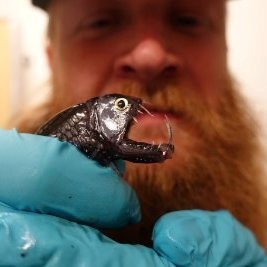The biology programme offers two short courses this spring.
2 ECTS 7-DAY SUMMER COURSE
This 7-day workshop will be based on the recently published Conservation and the Genomics of Populations (3rd edition, Allendorf et al. 2022). This established book provides a comprehensive overview of the essential background, concepts, and tools required to understand how genetics and genomics can be used to conserve species, reduce the threat of extinction, and manage species of ecological or commercial importance. Allendorf will present the subject of the book over three days and then students will prepare and present a short lecture of their project or article. New genomic techniques and statistical analyses are crucial tools for the conservation geneticist. This workshop will provide an essential toolkit grounded in population genetics theory, coupled with basic and applied research examples from plants, animals, and microbes. The workshop will examine genetic and phenotypic variation in natural populations, the principles and mechanisms of evolutionary change, evolutionary response to anthropogenic change, and applications in conservation and management. Topics 1. Introduction 2. Genomic variation in populations 3. Hardy-Weinberg principle 4. Genetic drift & effective population size 5. Natural selection 6. Mutation 7. Gene flow & population structure 8. Multiple loci 9. Hybridization 10. Inbreeding depression 11. Units of conservation 12. Demography and extinction 13. Exploited populations 14. Climate change 15. Genetic monitoring
At the end of the course, a students should be able to:
- to describe the background and the concepts of population genetics with relation to conservation
- to describe the main genetic and genomic methods which can be applied in species conservation
- to describe applications of genetics and genomics in management of ecological and commercial importance.
For more info contact
Snæbjörn Pálsson
2 ECT 5-DAY SUMMER SCHOOL
The mesopelagic zone (between 200-1000m depth) is the habitat of the largest fish biomass in the ocean.
Mesopelagic fish likely hold a key role in global climate change by participating in the largest migration in the animal kingdom, transporting and storing carbon into the deep sea.

Credit: Leif Grimsmo, SINTEF Ocean
About the course
The SUMMER (Sustainable Management of Mesopelagic Resources, 2019-2024) EU project aims to evaluate if and how mesopelagic resources can be sustainably exploited.
To share the knowledge of the mesopelagic zone, experts from the SUMMER project have arranged a 5-day summer school course for 2 ECT credits, with the Marine and Freshwater Research Institute and the University of Iceland, in Iceland May 22nd – May 26th 2023.
The course will feature lectures from world-leading experts on mesopelagic research, engaging discussions, as well as hands-on laboratory work on mesopelagic fishes – in addition to the dissection of a marine mammal, apex predator of mesopelagic fish.
After completing the course
Students will be familiar with:
• Biology and Ecology of the Mesopelagic Zone
• Taxonomy and Diversity of Mesopelagic Fish
• Mesopelagic Fisheries (Economy, Governance,
Technology)
• Dissection of Mesopelagic Fish and Mammals
Students will develop valuable knowledge of one of the most understudied ecosystems in the world’s oceans, meet worldwide leaders in mesopelagic research, and study in an international group.
Students will also get to experience Reykjavik, the capital of Iceland in May – during a wonderfully bright spring.
The course itself is free for participatnts, but travel expenses (food, lodgings, and transport) must be covered individually.
International students are encouraged to apply, and housing is available on the university campus.
For more information
Website: www.summerh2020.eu
Email: hrandhawa@hi.is
